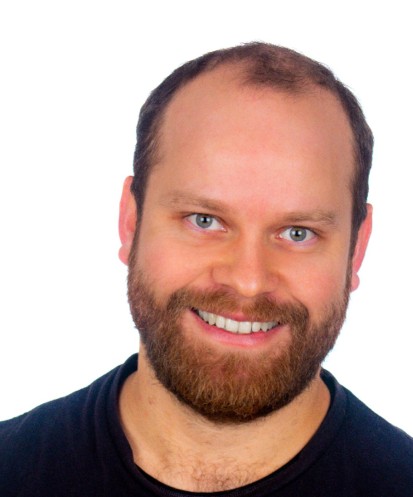The OXIPRO team at Barcelona Supercomputing Centre is delighted to welcome a new team member, Martin Floor.
Born in the Netherlands, Martin was raised in Chile, where he successfully completed his BSc and MSc in Biochemistry at the University of Chile, the latter focussing on the production of recombinant proteins and Biotechnology. In his MSc thesis, and under the supervision of Prof. Gerald Zapata, Martin developed the basis of a theoretical enzyme for a type of reaction only catalysed by an artificial catalytic antibody. This work laid the foundation of his interest in the computational design of enzymatic systems, which continued with his PhD at the University of Vic in Catalonia.
Martin has been living in Barcelona for the past six years, having gone there to work under the supervision of Prof. Jordi Villà, who was trained in enzymatic reactivity studies by the Nobel laureate Prof. Arieh Warshel, among others. During this period, Martin undertook two crucial research stays at the laboratories of Prof. Lynn Kamerlin at Uppsala University, and Prof. Jenn-Kang Wang, at the Arieh Warshel Institute in China. These internships enhanced his understanding of enzymatic systems and equipped him with the practical methodologies required to further study the theoretical aspects of the computational enzymatic design field.
After finishing his PhD, Martin started a postdoctoral position at the Barcelona Supercomputing Center in Victor Guallar’s group. In less than a year he has succeeded in applying some of the theoretical concepts developed during his formative years to design new enzymatic systems computationally.
Martin commented: “The OXIPRO poject presents an ideal opportunity for me to develop new techniques in computational enzyme design since it poses unique challenges requiring the coupling between the wet lab and computational scientific frameworks. I am thrilled to participate in this project since it offers unique opportunities to validate my long-sought academic goal of understanding enzymatic systems through the computational design of proteins”.
